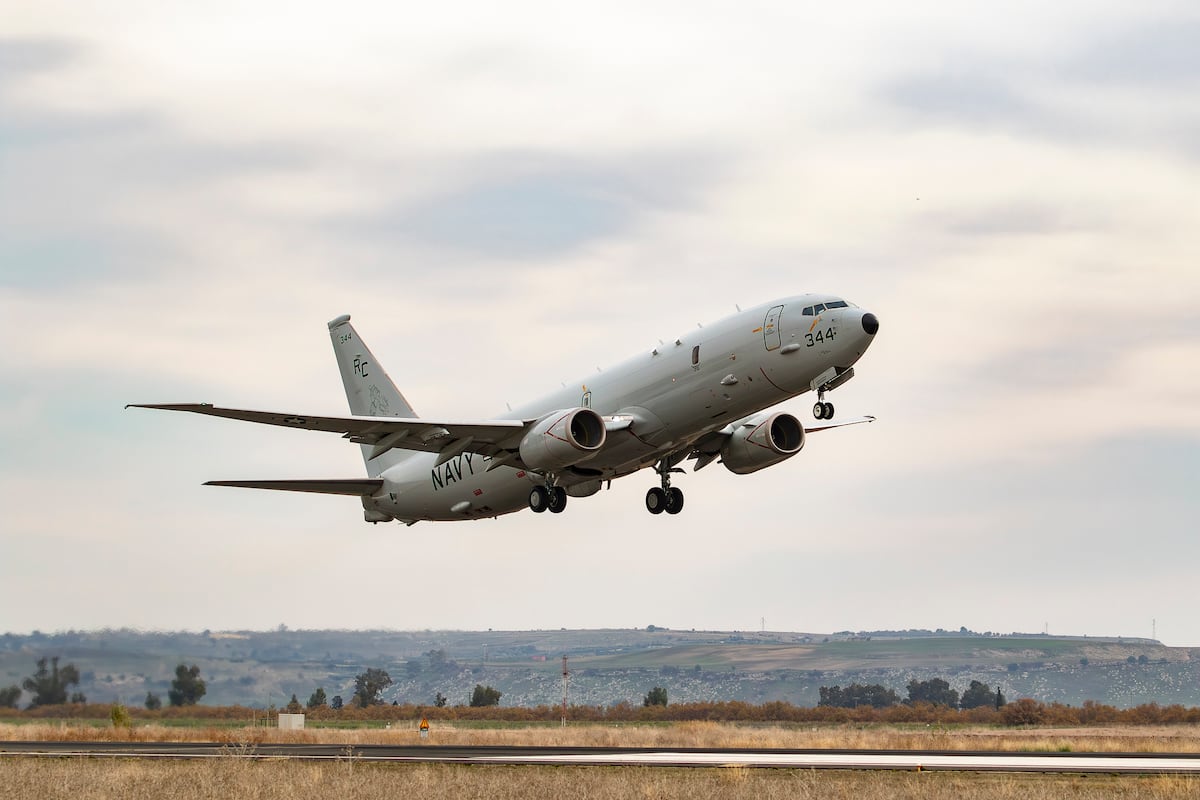


MUNICH — The German navy has received its first of eight Boeing P-8A Poseidon maritime surveillance and counter-submarine aircraft, the country’s military announced on Thursday.
The aircraft, handed over at the manufacturer’s Seattle, Washington, production plant, are meant to strengthen Germany’s maritime surveillance capabilities globally. A special focus will be on detecting and combating enemy submarines, said Vice Adm. Jan Christian Kaack, the navy’s chief of staff.
Germany decided to procure the P-8A Poseidon in 2021 with the intention of replacing Berlin’s aging fleet of P-3C Orion aircraft, which currently serve on naval surveillance and sub-hunting missions.
Initially, officials ordered five P-8 aircraft for a total of €1.1 billion ($1.29 billion), with three further planes procured following Russia’s invasion of Ukraine in 2022 and the activation of a special extra-budgetary defense fund to beef up Germany’s military that year.
The navy has indicated it is considering buying four more, which would bring the total to twelve.
Although Boeing, an American company, produces the aircraft, the press release emphasized that maintenance would be done through German partners ESG and Lufthansa Technik.
Concerns about technological independence and military autonomy have risen in Germany and across Europe in the wake of U.S. President Donald Trump’s return to the Oval Office.
Ten close allies of the United States have placed orders for the Poseidon, including Japan, South Korea, Norway, Canada and the United Kingdom.
Together, the global P-8 fleet has logged more than 700,000 flight hours to date, Boeing said.
The aircraft will serve with the Marinefliegergeschwader 3 (naval aviation squadron, in English), which is located in the northwest of Germany, along the country’s North Sea coast.
NATO countries’ abilities to police the North and Baltic seas has come under heightened scrutiny recently as a result of Russian maritime activities in the area, including the passage of military vessels and the movements of the Kremlin’s “shadow fleet” of aging oil tankers used to circumvent Western sanctions.
Kaack called the P-8A a “flying guardian,” saying the planes would provide a “quantum leap” when it comes to range, sensors and duration of missions.
“Our naval aviators are looking forward to the P-8A and I can ensure you, their inspector is, too,” he said, referring to his job title, inspector, in German military parlance.
Linus Höller is Defense News' Europe correspondent and OSINT investigator. He reports on the arms deals, sanctions, and geopolitics shaping Europe and the world. He holds a master’s degrees in WMD nonproliferation, terrorism studies, and international relations, and works in four languages: English, German, Russian, and Spanish.

